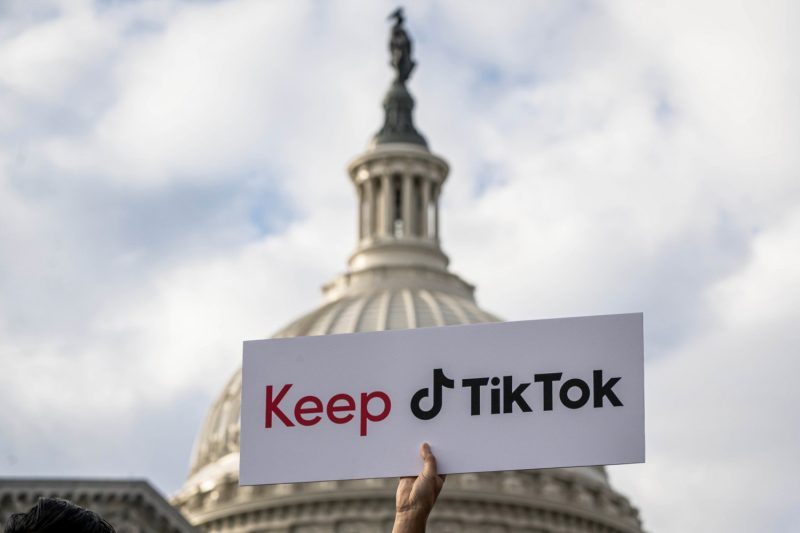The recent decision by Congress to approve a potential ban on TikTok has sparked significant debate and controversy. While the move signals a growing concern over national security and data privacy issues associated with the popular social media app, the process of implementing such a ban could be a complex and lengthy one. Here, we delve into the key reasons why it could take years before the TikTok ban actually comes into effect.
1. **Legal Challenges**: One of the primary reasons for the potential delay in enforcing the TikTok ban is the likelihood of legal challenges. If the ban is implemented, it is almost certain that TikTok’s parent company, ByteDance, will seek legal recourse to contest the decision. This could result in a protracted legal battle that may take years to resolve.
2. **International Implications**: TikTok’s global reach and user base mean that any ban imposed in the United States could have significant international repercussions. Foreign governments and regulatory bodies may also get involved, leading to diplomatic tensions and further complicating the enforcement of the ban.
3. **Technical Limitations**: Enforcing a ban on a widely used app like TikTok involves technical challenges. Users can easily circumvent restrictions through VPNs or other means, making it difficult to completely block access to the platform. Developing effective technological solutions to enforce the ban could require significant time and resources.
4. **Political Considerations**: The issue of banning TikTok is not just a matter of national security but also carries political implications. Lawmakers may face pressure from various stakeholders, including businesses, influencers, and the public, which could influence the timeline for implementing the ban.
5. **Regulatory Processes**: Regulatory processes can be slow and bureaucratic, particularly when dealing with complex issues like cybersecurity and data privacy. The ban on TikTok would need to go through multiple levels of review and approval, further delaying its implementation.
6. **Negotiations and Alternatives**: Before a ban is fully enforced, there may be negotiations between the government and TikTok’s parent company to explore alternative measures to address security concerns. This could involve concessions, data sharing agreements, or other arrangements that could prolong the process.
7. **Changing Political Landscape**: The political landscape is constantly evolving, and the priorities of lawmakers may shift over time. As new issues and challenges emerge, the urgency of implementing a TikTok ban could diminish, leading to delays in its enforcement.
In conclusion, while Congress’s approval of a potential TikTok ban is a significant step, the road to actually enforcing the ban could be a long and arduous one. Legal challenges, international implications, technical limitations, political considerations, regulatory processes, negotiations, and the changing political landscape are all factors that could contribute to delaying the implementation of the ban. As the debate surrounding TikTok continues to unfold, it remains to be seen how and when the ban will ultimately take effect.

